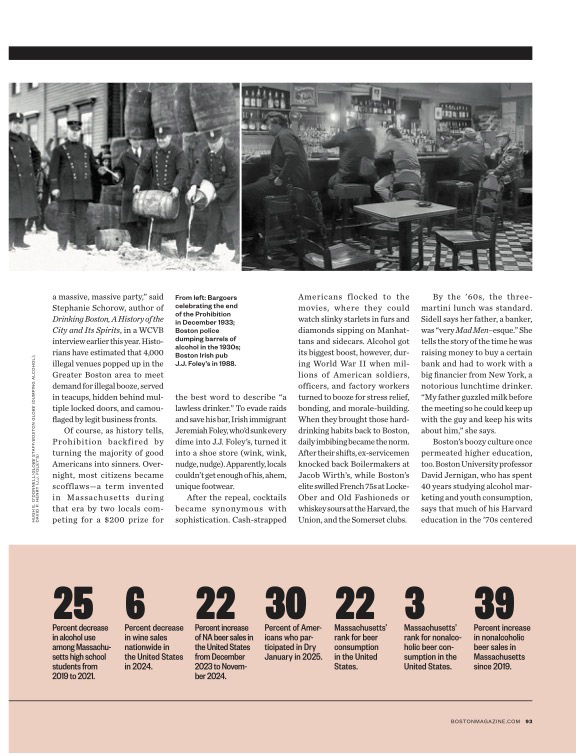
To evade raids [during the Prohibition] Jeremiah Foley, who’d sunk every dime into J.J. Foley’s, turned it in to a shoe store (wink, wink, nudge, nudge). Apparently, locals couldn’t get enough of his, ahem, unique footwear. After the repeal, cocktails became synonymous with sophistication. Cash-strapped Americans flocked to the movies, where they could watch slinky starlets in diamonds sipping on Manhattans and sidecars. Alcohol got its biggest boost, however, during world war II when millions of American soldiers, officers, and factory workers turned to booze for stress relief, bonding and morale-building. When they brought their drinking habits back to Boston, daily imbibing became the norm. After their shifts ex-servicemen knocked back boilermakers at Jacob Wirth’s, while Boston’s elite swilled French75s at Locke-Ober and Old Fashioneds or whiskey sours at the Harvard, the Union and the Somerset clubs. By the ’60s, the three-martini lunch was standard. [Kathy] Sidell says her father, a banker, was “very Mad Men-esque”. She tells the story of the time he was raising money to buy a certain bank and had to work with a big financier from New York, a notorious lunchtime drinker. “My father guzzled milk before the meeting so he could keep up with the guy and keep his wits about him,” she says.
—by Rachel Slade, published on page 93 in the Boston Globe Magazine, May 2025. The other pictures I took of J.J. Foley’s that Saturday are shown in the Boston section of my web site.